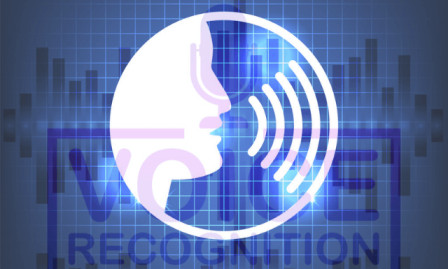The process of decoding the human voice by a computer software programme in order to receive and interpret dictation or understand and carry out spoken commands is known as voice recognition. With the emergence of AI, voice recognition has gained popularity and applications.
Voice recognition software is a programme that uses speech recognition algorithms to recognise spoken languages and take appropriate action. The voice recognition technique is vital in virtual reality because it allows the user to manage the simulation in a natural and intuitive way while keeping their hands free.
It can also be beneficial to folks who are physically impaired or unable to operate on a computer. Voice recognition is a method of controlling a device, issuing orders, or writing without the need of a keyboard, mouse, or buttons.
Voice recognition may be used to operate smart homes, send commands to phones and tablets, make reminders, and connect with personal technology without having to use your hands. The most common application is for text entering without the need for an on-screen or real keyboard.
Types of voice recognition systems
- Speaker dependent system – Voice recognition requires training before it can be used, which requires you to read a series of words and phrases.
- Speaker independent system – The voice recognition software recognizes most users’ voices with no training.
- Discrete speech recognition – The user must pause between each word so that the speech recognition can identify each separate word.
- Continuous speech recognition – Voice recognition can understand a normal rate of speaking.
- Natural language – The speech recognition not only can understand the voice but can also return answers to questions or other queries that are being asked.
How Does Voice Recognition Work
Voice recognition technology works by digitising a voice sample of a person’s speech to generate a one-of-a-kind voiceprint or template. Analog audio must be converted into digital signals by voice recognition software on computers, a process known as analog-to-digital conversion.
Both speech and voice recognition function by converting “analogue” spoken words into “digital” signals that a machine can comprehend. As simple as this may appear, it necessitates a significant amount of back-end processing to account for variances in dialect, volume levels, tempo, and pronunciation.
A computer needs have a digital library, or vocabulary, of words or syllables, as well as a quick way to compare this data to signals in order to decode a signal. Basically, there are two parts to how Voice Recognition works.
- The physiological component of a person’s voice is determined by the form of that person’s vocal tract, which includes the larynx, nose, and mouth. The waveform of a voice sample is used in biometric technology to digitally replicate the structure of an individual’s vocal tract. Because no two people have the same vocal tract, each person will have a distinct voice impression.
- The physical movement of the individual’s jaw, tongue, and larynx is represented by the behavioural component. Variation in this movement creates changes in a person’s voice’s tempo, style, and pronunciation, which includes the person’s accent, tone, pitch, and speaking rate, among other things.
Voice Recognition Modalities
Vocal recognition is speaker-dependent, requiring knowledge of the candidate’s unique voice characteristics. Through voice training, this system learns those traits (or enrollment).
- The system needs to be trained on the users to accustom it to a particular accent and tone before employing to recognize what was said.
- It is a good option if there is only one user going to use the system.
Speaker independent – by constraining the contexts of speech, such as words and phrases, systems are able to recognise speech from a variety of users. These systems are used for telephone interfaces that are automated.
- They do not require training the system on each individual user.
- They are a good choice to be used by different individuals where it is not required to recognize each candidate’s speech characteristics.
Challenges Faced When Integrating Voice Capabilities
Since voice integration is a relatively new technology, challenges are bound to appear.
1. Real-time response behavior
The device’s network capability, network connection, and microphone determine the device’s real-time responsiveness. The mobile app must communicate with the server to turn speech data into text when a user issues a voice command. The text is actionable once it has been transformed and returned to the device.
Real-time response behaviour refers to the process of transmitting and receiving app action. If the device’s configured action is to search, it makes a new request to the server to retrieve the results. Network latency can be the most difficult issue to deal with in these situations.
To avoid this, developers must make sure that the app’s source code is correctly optimised. They can also migrate voice recognition and search capabilities to the server.
2. Languages and accents
Because not all software supports all languages, developers must first determine the regions of their target audience before making strategic language or accent decisions.
Accents are a language challenge since it might be difficult to target and detect each accent and the language that goes with it. Google’s API supports a variety of accents and is the most efficient approach to make your mobile app support a wide range of accents.
3. Punctuation
When it comes to voice-based software, this is one of the most difficult problems to solve. Unfortunately, even the best enhancements and algorithms may fail to work since there are so many different types of punctuation in sentences.




















